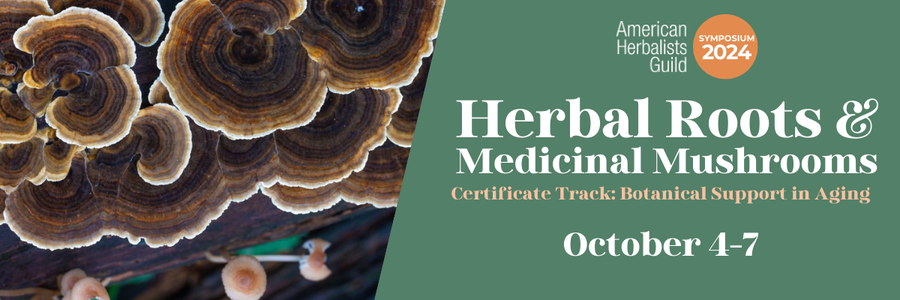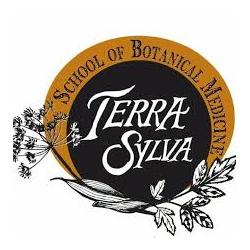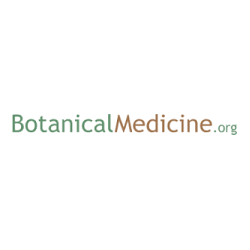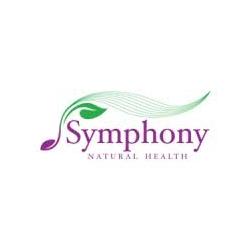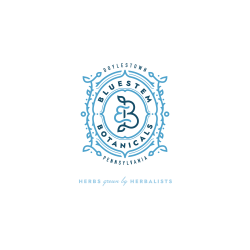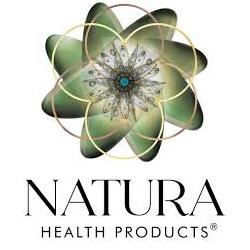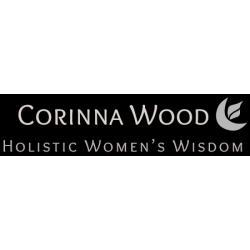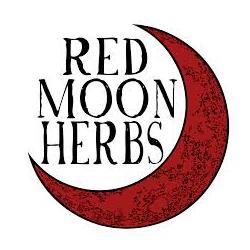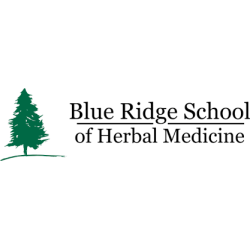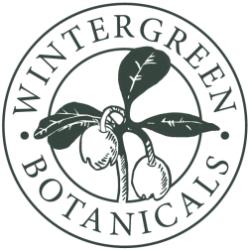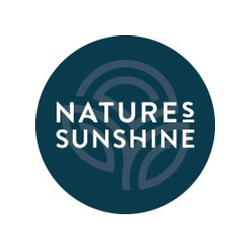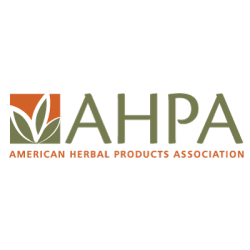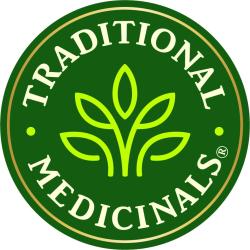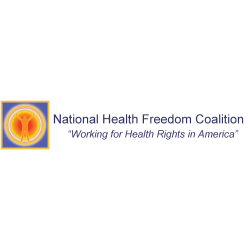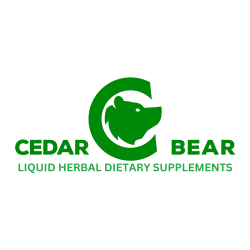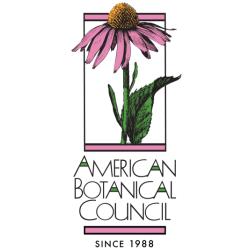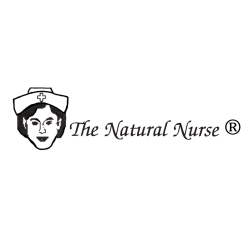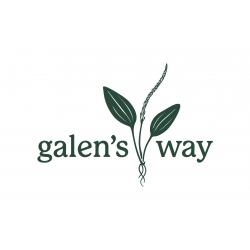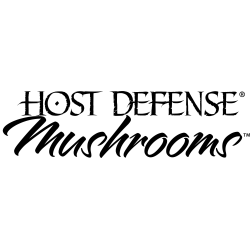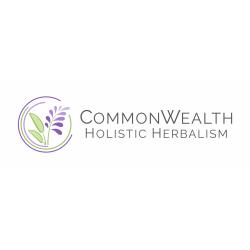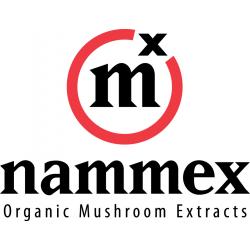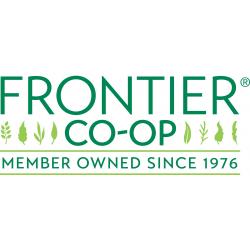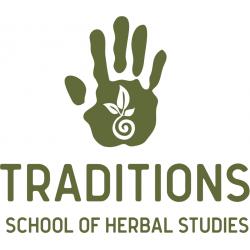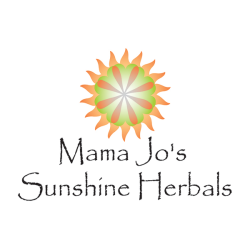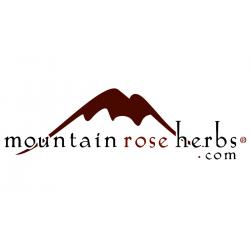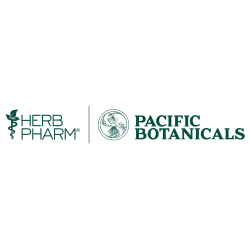Let's Talk about Sex: Herbs for Sexual Health and Vitality
What’s more exciting than sex, love, and herbs?
This class is sensory exploration of the physiology of arousal, along with herbs, lifestyle considerations, and nutrition to support long-term sexual health and vitality at any age. We will use inclusive, non-gendered language, making it accessible to all.
Throughout class, we will sample and discuss herbal recipes designed to stimulate the senses, increase circulation, calm the nervous system, and elevate mood. Time permitting, we’ll do a tea tasting at the end of class.
Presenter: Mel Kasting
Addressing Climate Change with Cooling Herbs and Foods
Heat-related illnesses are on the rise. Herbalists, with our understanding of energetics, can address these illnesses using cooling herbs and foods. In the context of climate change health risks, Kat provides detailed suggestions for addressing cardiovascular health by increasing fluids and using herbs and foods that heat. She'll also share ideas for teas that can serve as tonics, providing the support needed when managing stress in your daily life.
Presenter: Kat Maier
An Energetics of Psychedelic Mushrooms: Perspectives of an Herbalist Supporting Sacred Circles
An herbalist's discussion of the energetics of psychedelic mushrooms, their use in sacred circles and a careful consideration of the varieties of experiences that may arise. An honest look into at least one contemporary folkway from an herbalist experienced in working with this medicine. One focus of this class will be sharing a formulary of familiar herbs that may be used in response to needs that may arise in the context of sacred circles. Includes herb tastings, reports and discussion. Note: This class will not be recorded.
Presenter: Samuel Perry
Anxiety in the Realm of the Unknown
Anxiety is a feeling that affects all life on earth. In todays climate, we see many triggers for anxiety around us; environmental changes, geopolitics, socioeconomic and social unrest is apparent and before us.
As herbalists we have knowledge of plant formulas, and remedies to support our communities during critical times of need. Even though the future is unknown, we can work with what we have now to support ourselves and each other through plant medicines which empower our stance to face tomorrow.
This class will look at common herbs that can be used and formula suggestions for anxiety. All levels welcome.
Ashwagandha: Maintaining Healthy Testosterone Levels in Aging Men
Declining levels of testosterone in aging men is clearly a modern issue. Terry will discuss how to assess when your patient's health issues are due to low T, and how to get to the root of the diagnosis, including the use of symptom questionnaires. He'll also present guidelines for determining when a hormone replacement referral is needed, and when to recommend herbs like ashwagandha.
Presenter: Terry Vanderheyden
Ganoderma lucidum: Cultivation, Chemistry & Clinical Use in Cancer
Reishi mushroom or Lingzhi has been used for centuries to address a wide range of health conditions. In this lecture, we'll review organic and traditional cultivation methods, various Ganoderma species and their chemistry, as well as their pharmacological and clinical uses. The application of reishi in age-related health conditions and data on leukocyte changes in cancer patients using reishi will also be covered.
Presenters: Kevin Spelman, Bill Chioffi
Healthy Aging with the Latest Science on Herbs, Diet and Other Practices
The major challenges of aging, according to this rapidly-expanding science will be discussed to set the stage.
A review of the latest science on the link between diet (especially Mediterranean diet), supplementation (for instance with vitamin D, omega fatty acids), and the regular or daily use of herbs like anti-inflammatories (turmeric, ginger, etc.), and immune-supplementation (with medicinal mushrooms) among other herb categories will be presented.
The science review includes latest clinical trials, meta-analyses, and epidemiological studies involving thousands of patients and volunteers specifically focused on cognitive and memory decline, loss of energy and drive, sexual function, musculoskeletal decline and degeneration. Share in the knowledge and advances without sifting through hundreds of papers that are recently emerging in the literature, which is immense. Clinically-focused, what to share with your patients and what to add to your daily practice.
Hidden Roadblocks to Herbal Success: Latex and Other Hidden Inflammatory Sensitivities in Herbs & Foods
This class explores commonly missed food, chemical and herb sensitivities that if unrecognized may lead to adverse reactions and poor clinical outcomes. We will look at sensitivities to latex and other foods and herbs that may trigger a response. The role of nightshades, Alpha-gal and others in poor outcomes will also be dicussed.
Presenter: Robert Linde
Introducing the Roots of Appalachia
Learn why the roots of Appalachian herbs are essential remedies, when to harvest them (first year vs. second year, etc.), and what we do with them. Fall is the ideal time to harvest roots when all the plant's vitality returns to them for winter storage. They also help root us to our place and slow us down. We’ll learn basic botany to identify local herbal root plants, how to harvest them sustainably and preserve them for remedies to last until the next fall harvest season.
Introducing the Roots of Appalachia
Learn about Appalachian roots, both native and invasive, and how to identify, harvest and work with them. This is the perfect time to get to know roots, as fall is when we harvest them. The vitality of the plants returns to the roots for winter storage, and we collect them to add to our apothecaries until the next fall harvest season.
Lesser Known Chinese Roots for Healing
Learn about lesser known medicinal roots traditionbally used in Traditional Chinese Medicine to support wellness, longevity, healthy aging and improve the overall quality of life. We’ll focus on roots that may be unfamiliar to herbalists in the West, including Panax notoginseng, Angelica sinensis, Rehmannia glutinosa, Coptis chinensis, Ophiopogon japonicus (Mai Men Dong) and others. The historical use of herbs and roots in China and a brief introduction to Chinese Medicine will also be covered.
Medicinal Mushrooms: The Human Clinical Trials
In this class we'll look at the numerous double-blind, placebo-controlled clinical trials that have been conducted and published about various mushrooms including reishi (Ganoderma spp.), lion's mane (Hericum erinaceus), turkey tail (Trametes versicolor), chaga (Inotus obliquus), shiitake (Lentinula edodes), agarics (Agaricus spp.), amanita (Amanita muscaria) and wood ear (Auricularia auricula-judae) are just some examples that will be explored along with contraindications for their use.
Mushrooms and Herbs Working Together
The clinical use of mushrooms is on the rise, but as herbalists we often don’t know the actions of these mushrooms or even how to blend them with our herbal allies. Xochitl will review five beneficial mushrooms, Lion’s Mane (Hericium erinaceus), Reishi (Ganoderma lucidum), Cordyceps (Cordyceps militaris), Turkey Tail (Trametes versicolor), and Agarikon (Fomitopsis officinalis), along with herbal allies Usnea (Usnea longissima), Ashwagandha (Withania somnifera), Schisandra berry (Schisandra chinesis), and Goji berry (Lycium barbarum). Learn how medicinal mushrooms and herbs work together to support immune function, cognition, antioxidant activity, and overall constitutional well-being.
Presenter: Xochitl Palomino
Mushwoomb Medicine & Fertility Fungi
Although mushrooms are beneficial for all bodies, in this lecture we will explore the ways they can be especially useful in the various stages of a woman’s life. Traditional uses, new research and clinical applications of using mushroom medicine for optimizing fertility, PCOS, PMS, endometriosis, menopause, autoimmune conditions, fibromyalgia, gut issues and hormone dependent cancers will be covered. And the use of psychedelic fungi will also be celebrated as powerful teachers and allies for women's health.
Presenters: Lindsay Chimileski
Our Relationship with Mushrooms (Dawoli): A Cherokee Perspective.
This is a cultural, biological, and medicinal introduction to the Cherokee relationship with Ani-Dawoli, or "those that are mushrooms," and their use as essential foods, medicines, and in ceremonial practices. We'll also explore the biochemical constituents found in these mushrooms and correlate this with their use. Vicki shares Cherokee stories and language to deepen your understanding of one of the most ancient relationships between beings.
Phytochemistry for Herbalists: A Meaningful Overview
You may be familiar with phytochemistry terms such as alkaloid, phenolic, terpene, polysaccharide, glycoside, and understand what they mean from context clues, but can you explain what they mean, or give an overview of these constituent types in comparison to each other? Can you infer their functional qualities and their safety significance? This is a concise overview of these critical terms and their use in herbal practice that will deepen your ability to understand, and apply, herbal phytochemistry.
Post-Symposium Intensive: Medicinal Mushrooms: Updates and Inspiration for Herbalists
Embark on a fascinating journey through the world of fungi with two renowned mushroom experts, Dr. Christopher Hobbs, Ph.D. and Robert Rogers, RH(AHG). Their extensive knowledge and years of experience make this a unique opportunity to delve into mushrooms! Discover how mushrooms can slow aging, reduce chronic inflammation, maintain a healthy immune response, create a vibrant gut microbiome, and benefit mood, cognition, digestion, and elimination.
Based on traditional use and current research, we'll explore how mushrooms, including reishi, turkey tail, lion's mane, chaga, shiitake, and others, can transform your diet into a nutritional powerhouse packed with vitamins, minerals, high-quality protein, and microbiome-supporting pre-biotic fiber, You learn about the range of benefits, including immune regulation, anti-inflammatory activity, and more, to be gained from mushrooms.
By the end of this class, you'll have a deep understanding of mushrooms and the practical knowledge needed to select the best and most effective mushroom products for yourself and your clients. Additionally, you'll discover how to make dried tea powders from various active and well-studied species and use them to prevent infections and other health challenges.
Pre-Symposium Intensive: A Critical Look at Herb-Drug Interactions ADV
Are you tired of hearing that every herb you use in your practice is dangerous because of the potential for herb-drug interactions (HDIs)? Are you flabbergasted by in vitro studies using a boatload of a single herb extract to conclude that it causes HDIs? Join Kevin for a rational approach to evaluating HDIs. By looking at specific herbs and case studies and comparing them to real-world human data, you’ll learn how to assess what is and isn't real about potential herb-drug interaction data.
Pre-Symposium Intensive: Tracing Roots and Healing Wounds: Africa's Botanical Heritage in North American Herbalism GEN
This intensive explores Africa's botanical legacy and its enduring impact on healing practices on both sides of the Atlantic. We examine Africa before colonization, tracing the origin of different botanical traditions and species accompanying the transatlantic slave trade. You’ll also learn about traditional healing practices, key botanical species, memory gardens and cultural preservation.
Presenter: Lyani Powers
Preserving Our Vital Waters: Kidney Yin and Aging
In Traditional Chines Medicine, the Water Element or Kidney acts like a pilot light to ignite and vitalize the body and to tend to our vital waters. As we age, we may experience a drying of tissues, membranes, joints and even a brittleness of spirit and mind. This class explores the medicine of the Five Elements, the season of Winter and the Kidney/Bladder with information about how herbs and foods can be used to nourish and replenish the Water Element.
Rooted Cycles: Syncing Root Medicines to Menstrual Cycle Phases
Optimize monthly menstrual cycles with root medicines! Learn how to safely synchronize healing roots with each of the four menstrual cycle phases to promote long-term body balance. We will look at the clinical use of roots to support hormonal ebb and flow throughout the menstrual, follicular, ovulatory, and luteal phases to ease discomfort and promote well-being.
Presenter: Fig Finkelstein
Roots of Maasai Medicine
Living between Tanzania and Kenya, Maasai people are one of the oldest indigenous peoples living in East Africa. Roots of Maasai Medicine is embedded deeply in the land, planted in the first nations of a people that roamed the earth. Herbal medicines play a crucial role in their lifestyles, rituals and ceremonies. We will discuss these herbal medicines, Maasai folklore, and the importance of protecting traditional knowledge.
Presenter: Olatokunboh Obasi
Roots of Resilience: An Herbalists' Guide to Clinical Harm Reduction
Harm reduction aims to minimize the negative impacts of high-risk behaviors through a compassionate, client-centered approach. Rather than focusing solely on elimination of a habit of behavior, it emphasizes reducing harm, fostering engagement, and inspiring incremental progress. In this interactive class, we'll explore harm reduction principles and apply them to real cases from my clinical practice, learning how to co-create health plans, build trust, and empower clients.
Presenter: Mel Kasting
Spiritual Roots and Ethereal Mushrooms: TCM’s Approach to Spiritual Wellness
In Traditional Chinese Medicine, treating the spirit is often considered necessary to address the root cause of a disease, even in the presence of branch symptoms. This class introduces you to the TCM approach to treating the spirit as essential part of botanical protocols using roots and herbs.
Ten Chinese Herbal Roots for Internal Reproductive Health
This class reviews herbal roots commonly used in Traditional Chinese Medicine for gynecology. We will learn about botanical classifications, taste profiles, energetics, actions, uses and common combinations for each herb. We will also analyze several TCM formulas that feature these herbal roots. This class will include lots of herb tastings!
Presenter: Anya Contierra
The Herbal Consultation: Observation and Discussion
Would you like to see an herbal intake in action? In this participatory session, you’ll watch Kelly conduct an intake with a volunteer client. Together we’ll look at all the elements of a consultation including differential assessment, establishing goals, and creating effective herbal protocols. Recommended for both advanced herb students and new clinicians who want to sharpen their intake skills.
The Importance of Roots for Human Well-Being
Our roots are who we are, the source of nurturing in our lives, and they affect our everyday decisions. Our roots are our cultures and our futures. If we want to live in a world with clean air, water, earth and nurturing of each other, we need to examine the roots of the land we are on and apply the indigenous wisdoms of connection to our lives. This class explores the social issues that affect our lands and how the roots of the land, indigenous people and plant remedies can support us.
The Moistening Roots
Explore how to treat the patterns of dryness/excess vata/yin deficiency using various roots from around the world. You'll learn the key clinical indications for symptoms of these patterns in your clients (beyond just dryness), how they express in various organ systems and tissues, as well as the herbal tastes, actions, and energetics to consider for botanical protocols. We'll do an in-depth analysis of key remedies (roots only!) that address these very common yet commonly overlooked patterns.
The Potential of Psilocybin-Assisted Therapy (PAP) for Supporting PTSD and Trauma : With 20 Years of Case Studies and Protocols
PTSD is a debilitating disorder with limited treatment options. This class explores the potential of psilocybin-assisted psychotherapy (PAP) for treating PTSD and trauma, citing promising results in reducing symptoms and facilitating recovery. Renee draws from her twenty years of experience with trauma therapies and shares case studies to shed light on proper safety protocols and pattern discrimination for support with this beautiful plant medicine.
Presenter: Renee Crozier Prince
The Synergy of Root Medicines
Synergists are herbs that enhance the effects other herbs when combined in formulas. Many of the most famous synergistic herbs are roots—but WHY? Explore the traditional uses, formula pairings, physiology and phytochemical underpinning of some of these synergistic roots. Learn how to choose specifc roots to act as synergists, boost the effectiveness of formulas, and achieve better outcomes in clinical practice.
Presenter: Juliette Carr
Three Roots of Life
Three majestic plants – distinct and robust in their personalities and medicine – are beautiful examples of how traditional uses, energetics, actions, pharmacology and biochemistry are merely different expressions of the same attributes. Contrasting how sweet Astragalus cradles and nourishes protective Qi, powerfully acrid black cohosh lifts us and stabilizes Wind and complicated calamus, with its bitter, aromatic poetry opens us to the world. All three plants remind us that they don’t distinguish between Body and Mind in their medicine. The class will include some traditional Chinese energetics and a discussion of sustainable ways to use all three.
Presenter: Richard Mandelbaum
Uncontainable Night: Herbs for the Stages of Grief in Clinical and Community Practice
Herbs can be powerful allies as we navigate the realm of grief. In this class we’ll discuss ways to frame the process of grief to better support the bereaved and discuss differentials for botanical remedies that provide support through the various stages of grief. We will also discuss strategies for mutual aid and community care in times of collective loss.
Presenter: Janet Kent
Understanding Biological Aging and Diversity: Botanical, Nutritional, Dietary, and Lifestyle Solutions
This presentation explores key theories and concepts in biological aging, including biomarkers like telomerase, inflammation, oxidation, hormones, and nutrient deficiencies. We’ll discuss the Quality Control Theory of Aging and its main targets, examine the impact of hormesis on health and aging, and present the latest research on botanicals that may increase lifespan. Attendees will gain insights into how botanical and nutritional medicine can help preserve and restore health in our aging world
Presenter: Donald Yance
Why Can't I Sleep?! Strategies for Sneaky Sleep Saboteurs
A good night's sleep is imperative for overall health and vitality, yet many of our clients don't sleep well despite our best efforts, and typical herbal remedies don't always work. Sleep problems can happen to anyone, and they often increase with age. Maria shares some of the easily missed culprits—especially for waking in the middle of the night—and offers tips to sleuth them out, suggesting natural and herbal support strategies.
Presenter: Maria Noël Groves
Wildcrafting Appalachian Medicinal Mushrooms
If learning to identify and use wild mushrooms feels overwhelming as you start your wild mushroom journey, this class is for you! Abby focuses on the seven most well-known medicinal mushrooms in the Appalachians, sharing pictures and stories from her wild harvesting experiences. She also includes identification, habitat, and lots of harvesting tips!
Presenter: Abby Artemisia
Wrong Roots, False Flowers, and Toxic Fruits: Case Studies in Accidental Herbal Poisoning
Accidental poisoning is a nightmare for practicing herbalists, but it does happen. Learn how to prevent toxicity from herbal preparations as David presents three case summaries of toxicity caused by yellow dock, chamomile-like flowers, and rose hips to highlight errors of reasoning that contributed to poisonings.
Presenter: David Beatty
